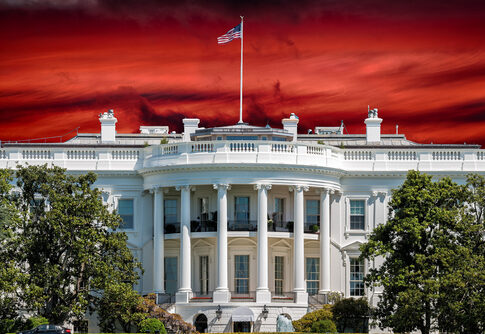A high-profile Trump nominee faces bipartisan fire after leaked texts reveal racist remarks and an admitted “Nazi streak,” putting the administration’s vetting process and conservative values under the microscope.
Leaked Messages Spark Bipartisan Outrage
Leaked private text messages from Paul Ingrassia, President Trump’s nominee for a top White House post, have ignited a firestorm in Washington. The texts, published by Politico, contain racist remarks targeting communities of color, Republican figure Vivek Ramaswamy, and civil rights leader Martin Luther King Jr.
In one exchange, Ingrassia openly admitted to having a “Nazi streak,” a statement that has drawn condemnation from both sides of the political aisle ahead of his confirmation hearings.
Senators from both parties, including Republicans Scott and Johnson, have publicly opposed Ingrassia’s nomination, marking a rare moment of unity against extremism.
The Trump administration, which has often emphasized loyalty and conservative credentials in its appointments, now faces uncomfortable questions about its vetting procedures and the standards it upholds for public service. As media coverage intensifies, party leaders are being forced to address whether such rhetoric reflects their values or undermines the broader conservative movement.
Vetting Failures and Party Accountability
The controversy over Ingrassia’s nomination is not an isolated incident. The Trump administration has previously faced criticism for appointing individuals with controversial or extremist backgrounds. This latest episode underscores the risks of prioritizing ideological alignment over thorough vetting, especially in an era where political polarization is at an all-time high.
Conservative voters who value integrity, constitutional principles, and traditional family values are left questioning how such candidates reach the threshold of Senate consideration without earlier intervention.
Republican leadership is now caught between defending the administration’s choices and upholding core party standards. For many grassroots conservatives, the expectation is clear: anyone who espouses or tolerates extremist or racist ideology has no place in government.
The party’s response to this scandal will likely set a precedent for handling similar cases in the future and influence public perceptions ahead of the 2026 midterm elections.
Broader Implications for Conservative Values and Political Culture
At stake is not merely a single nomination, but the credibility of the conservative movement itself. The exposure of racist and extremist sentiments among high-level nominees fuels accusations from the left that the party is drifting from its foundational values of individual liberty, equal justice, and respect for the Constitution.
Conservative Americans, particularly those frustrated by years of leftist overreach, government expansion, and attacks on free speech, are demanding that their leaders draw a clear line against hate and extremism.
While some commentators caution against “cancel culture” and advocate for due process, the facts of the case—confirmed by the nominee’s own admissions—make it difficult to justify inaction.
The episode has also prompted renewed calls for enhanced transparency and accountability in the appointment process. Many see this as a crucial moment for the Republican Party to reaffirm its commitment to principled governance, constitutional rights, and the preservation of American values in the face of internal and external threats.
Senate Hearings and the Future of GOP Leadership
With Senate hearings scheduled for October 23, 2025, the outcome of Ingrassia’s nomination remains uncertain. The growing chorus of bipartisan opposition suggests that the nomination is in serious jeopardy. Republican senators, in particular, will be watched closely by their constituents as they navigate the tension between party unity and moral responsibility. The handling of this controversy may shape the party’s identity and its appeal to voters concerned about the direction of conservative leadership in the post-Biden era.
As the story continues to develop, conservative Americans are reminded of the stakes involved in every appointment and the need for vigilance in defending the values that make this country strong. The Ingrassia episode serves as a cautionary tale about the dangers of complacency and the imperative for principled action when core ideals are threatened from within.


